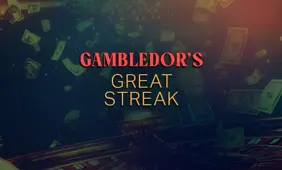Shuffle Tracking in Blackjack – Techniques to Master Chaos

There are many ways to beat the blackjack game without resorting to cheating.
Advantage play is about recognising flaws or vulnerabilities in casino procedures and using maths, physics and imagination to defeat seemingly immovable odds.
Card counting is one way to predict the quality of cards yet to be dealt, but what if you could somehow know - and even control - when and even where the best cards will land before a single card has been dealt from the shoe?
The Art of Cards Magic Tricks
I've spent a little time on cruise ships as a guest speaker, and after my presentations I'm often approached by other passengers keen to learn more about magic, deception, cheating and advantage play. On one particularly long cruise from the Americas to the Antipodes, I would regularly chat with people in a little cafe at the heart of the ship close to gift shops, where I once asked someone to go and buy a brand new deck of cards and bring it back to the table unopened.
When they returned, I asked them to open the packaging, discard the jokers and give the deck a number of riffle shuffles, then select a card and lose it somewhere in the middle before giving the deck a final shuffle and a cut.
This seemed to everyone present to be a fair challenge given the conditions, but they were surprised when I called over the waiter after the cards were spread face up across the table. When he joined us, I said nothing at all (in order not to convey some secret message) while my small audience explained that he should try to guess the selected card.
He immediately replied, "I don't need to guess— it's the six of spades!" as he removed their card from the spread before returning to his work.
The group was flabbergasted, but the solution to this minor miracle was actually quite simple.
How It All Began You Might Ask
In the 1920s, magician Charles Jordan would torment fellow conjurors with the same effect based on a principle he devised where the performer could recognise patterns in a deck of cards that had been shuffled several times so long as he knew the original order of the cards. A brand new deck comes in "new deck order" with the suits separated in numerical order, so even though two or three riffle shuffles and cuts may render a seemingly random order; a knowledgeable observer can see patterns that persist from the original arrangement.
In fact, Jordan would sometimes mail a brand new deck to friends with written instructions how to shuffle, cut and lose a selected card before returning the deck to Jordan by the same means. A few days later, the selected card would arrive in the post!
Sometime later, the principle used by Jordan would be applied to a much more profitable pursuit.
Shuffle Procedures – Completely Fair or Easy to Predict?
Casino procedures are designed in the hope of defeating outside influences and creating true randomness in a game of blackjack that players cannot predict, but over the years, many such procedures have proven embarrassingly easy to defeat.
Shuffle procedures may look entirely fair and impossible to predict, but smart players quickly recognise a weak shuffle that fails to distribute and mix cards sufficiently and use thus in their blackjack strategy. Many advantage blackjack players can gauge the weaknesses of a shuffling procedure merely by watching it once or twice, then memorise the dealer's actions and later repeat those actions to learn exactly what the outcome might be if you knew what cards were where at the outset.
I have a box filled with souvenir decks from multiple casinos, each a different colour and if I stack eight of these decks in a segregated rainbow of cards and then perform any of a hundred shuffling procedures from thousands of casinos around the world, the final outcome of that shuffle might be surprisingly revealing.
By spreading all eight decks face down (post-shuffle), one can see exactly which decks became inter-mixed; in some parts of the spread, one might find cards of all colours, but in others, there may be only two or three colours interweaved.
What this means is that if I know where those decks started pre-shuffle, I could feasibly predict where they might end up post-shuffle and use that information during play.
How the Magic Works to Help Our Blackjack Strategy?
For example, let's say I know that the second deck down in an eight deck stack will end up shuffled only with the fifth deck down and that those two decks will end up halfway down the stack after shuffling. I now know that if I place the cut card in the right location, I can make sure those two decks (now shuffled together) will be the first cards out of the shoe when the next round of play begins.
So let's say we play for a couple of hours while counting the cards, constantly memorising where groups of high cards end up as they are played and discarded in order to help our blackjack strategy.
At the end of a round of play, we might recognise those two key packets that will end up mixed together were both full of high value cards. All we need to do is place the cut card right above those cards (after the shuffle), and we start playing the next shoe with a positive edge against the house for at least the first one hundred cards to be dealt!
This gives us one hell of an advantage against the house, but best of all, it doesn't look like we are counting cards at all since we start betting big from the first round, whereas traditional card counters can only shift gears once they've seen enough cards to recognise a positive true count.
Shuffle Tracking and Shuffling Machines
Shuffle tracking is a powerful weapon in an advanced players' arsenal of blackjack strategy, but the modern trend for shuffling machines has made this a lot more difficult - but not impossible. For example, a large casino shuffler was installed in a Las Vegas casino in the mid-nineties that was so easy to predict there was a line of advantage players waiting for a seat to open at that table!
That shuffling machine lasted about forty-eight hours before the casino wisely threw it in the trash.
More advanced machines seem a lot harder to beat until players spot some sort of weakness that might have been missed in the design and testing process. One machine would automatically insert discarded cards one at a time into a constantly changing stack of cards within the machine. Cards were randomly placed, but when first installed, those cards were inserted from the bottom of the deck towards the top, so any cards replaced first would be somewhere near the bottom of the stack and therefore might be out of play for some time since the machine always dealt from the top.
This meant the order of discards was well worth paying attention to; if many low-value cards went into the machine first, they could be out of play for hours. Equally, if high cards were sent to the bottom of the stack - even to random positions - you could be sure that machine would be less profitable to players in the long run.
A key flaw in this machine was that it had to start with a shuffled deck, and this shuffle could also be tracked so blackjack players might observe if the shuffled stack going into the machine at the beginning of a shift was weighted one way or another; if high cards were near the top and low cards near the bottom, that table could be profitable for many hours.
Don’t Piss of the Blackjack Dealer!
Some teams might have paid dealers to make sure the low cards got steered into the basement, but equally, some casinos might have gotten the same idea, and I had at least one dealer in Europe tell me that decks were pre-shuffled and dropped into machines with high cards to the backend then high cards were regularly cut to the bottom of any discards being returned to the machine. I'm sure this was entirely coincidental. This same dealer also talked about an anti-player culture that existed with croupiers happy to make sure "punters" lost as much money as possible, regardless that none of that money went to the dealers!
One lesson I learned early on was to always tip the dealer and, if tips were forbidden, to at least not piss them off.
Back on that cruise ship, I repeated that trick several times with the same waiter, but I never had to teach him the secret to untangling Charles Jordan's original mathematical principle. He simply made sure he was behind the person who selected a card and got a glimpse before returning to the coffee bar until I called him over!
I know: that's cheating.





Review this Blog
Leave a Comment
User Comments
comments for Shuffle Tracking in Blackjack – Techniques to Master Chaos